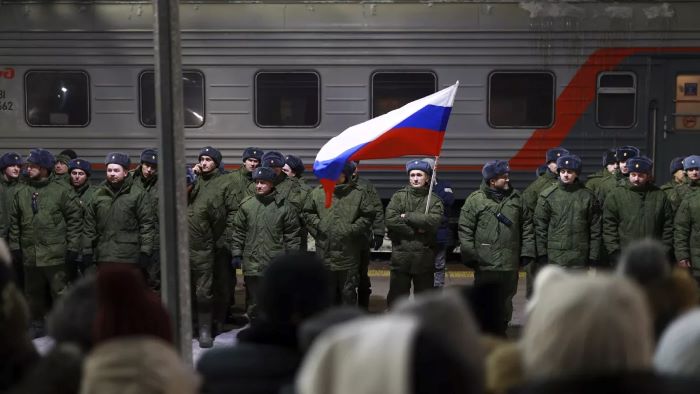Russia plans to allocate 90 billion rubles ($948 million) for one-time payments to individuals signing military contracts with the Russian Ministry of Defense (MoD) between 2025 and 2027, according to a report by the Institute for the Study of War (ISW) on 5 October. This move indicates that the Kremlin intends to continue relying on ongoing crypto-mobilization efforts to meet the manpower requirements of its war in Ukraine for the foreseeable future, the think tank says.
The Russian federal government currently offers 400,000 rubles ($4,200) as one-time payments for signing a military contract, in addition to payments offered by regional governments. Some regional payments have recently exceeded one million rubles. Based on current rates, the allocation suggests that the Kremlin aims to recruit approximately 225,000 new personnel through contract service between 2025 and 2027.
However, the ISW notes that these rates are unlikely to remain static, as they have steadily increased since 2022. The significant increase in financial incentives in recent months suggests that existing recruitment efforts were insufficient for maintaining the consistent generation of new forces required to sustain Russia's offensive tempo in Ukraine.
Russian authorities have reportedly expressed concerns that ongoing recruitment efforts are producing diminishing results.
ISW assesses that there are "medium- to long-term constraints on how many recruits the ongoing Russian crypto-mobilization campaign can generate, and increased financial incentives are unlikely to significantly address these constraints."
Russian President Vladimir Putin remains committed to the ongoing crypto-mobilization campaign to avoid declaring another widely unpopular partial mobilization call-up of reservists. However, he maintains the option to call another round of partial mobilization, as he did in fall 2022, as per ISW.
"Putin and the Russian military command appear unwilling to accept reducing the intensity of Russian combat operations in Ukraine since they view maintaining the theater-wide initiative as a strategic imperative, and it remains unclear whether Putin will respond with another round of mobilization if faced with another crisis," ISW concludes.
Related:
- UK intel: Russia to continue forcing conscripts into post-service contracts to fight in Ukraine amid high attrition
- Russia doesn’t have endless resources, its economy nearing tipping point, expert says
- ISW: Russia centralizes volunteer recruitment amid manpower struggles for Ukraine war
- Putin’s fear of societal backlash prevents new mobilization wave, ISW says
- Resources of war: Can Russia sustain its war in Ukraine for years? (infographics)
- Russia producing three times more artillery shells than US and EU for Ukraine
- ISW: Russia aims for victory over Ukraine by 2026 amid growing economic challenges
- UK intel: Russia boosts military output in 2023, will have materiel edge over Ukraine in 2024

